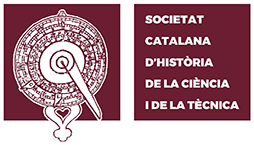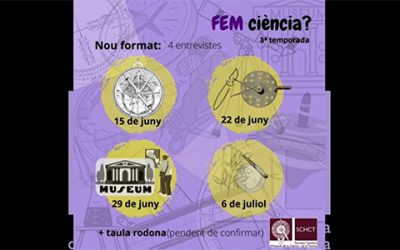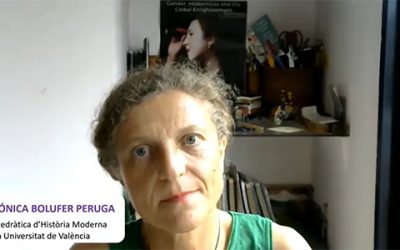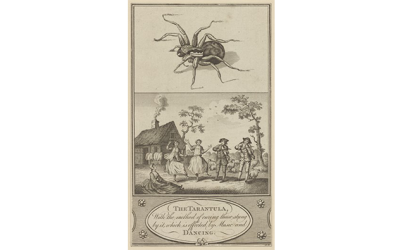Novetats
FEM ciència? – 3ª temporada
FEM ciència? - 3ª temporada Propostes de la SCHCT per conèixer quin paper juguen les dones a la història de la ciència Comença la tercera temporada...
Segona Taula rodona
Segona Taula rodona FEM ciència? Propostes de la SCHCT per conèixer quin paper juguen les dones a la història de la ciència Dimarts de la setmana...
Primera Taula rodona
Primera Taula rodona Propostes de la SCHCT per conèixer quin paper juguen les dones a la història de la ciència (Fem ciència? – Societat Catalana...
Entrevista a Mónica Bolufer Peruga [9.11.2023}
Entrevista a Mónica Bolufer Peruga “Més que de sexisme, m’agrada parlar de ceguera en la història de la ciència.” En aquesta entrevista parlarem amb...
Antropología de las emociones: Un ejemplo español de tarantismo
THE TARANTULA With the method of curing those stung by it, which is effected by Music and DANCING - specifically, by dancing the tarantella, circa...
Entrevista a Núria Solsona i Pairó [26.10.2023]
Entrevista a Núria Solsona i Pairó “La historia de la ciència a l’educació ha estat molt poca: és anecdòtica, poc inclusiva i presenta personatges...
Destacats
Col·loquis
Cicles de conferències i seminaris sobre diferents temes relacionats amb la Història de la Ciència i la Tècnica i la seva divulgació.
Jornades
A anys alternats es celebren la Jornada d’Història de la Ciència i l’ensenyament i la Jornada d’Història de l’Astronomia i la Meteorologia.
Trobada
Reunió científica general que, cada dos anys, té per objectiu acollir els treballs de recerca i les activitats que duen a terme els socis i tothom qui vulgui participar.
Escola de Primavera
Té com a objectiu l’estudi de la interacció entre la ciència i els seus públics a través de l’observació d’espais i pràctiques de comunicació. Conjuntament amb l’IME.




![Entrevista a Núria Solsona i Pairó [26.10.2023]](https://schct.iec.cat/wp-content/uploads/2024/03/nuria_solsona-fem-ciencia-3a-temporada-400x250.jpg)





